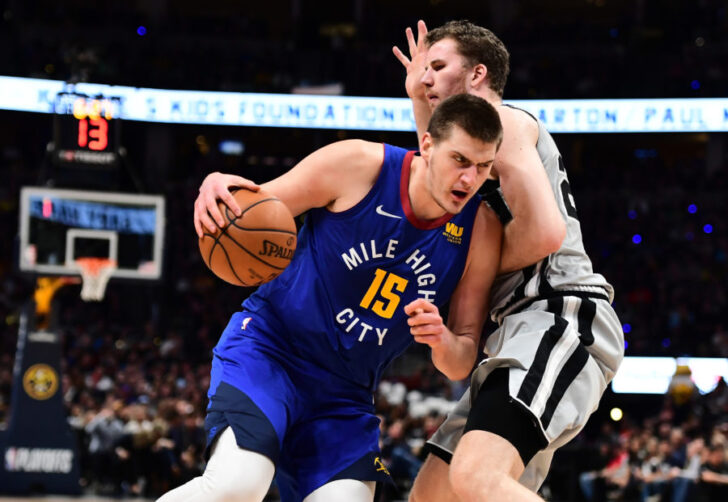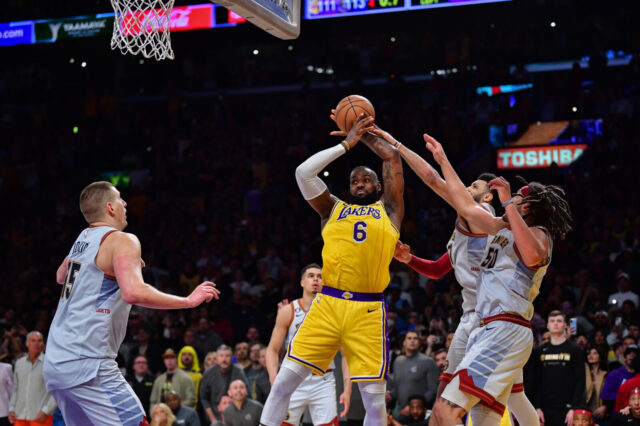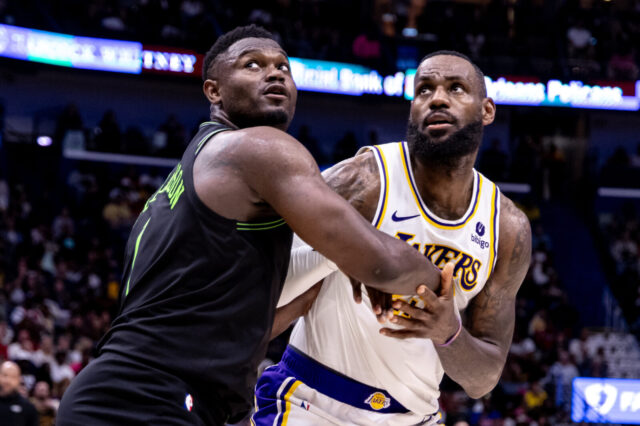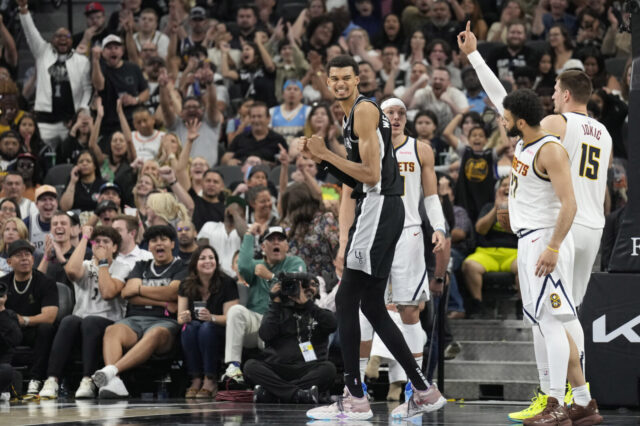They just grow up so darn fast, don’t they?
One minute they’re knee-high to a …
… and the next Gregg Popovich is “really happy for them.”
Right before our eyes, the Denver Nuggets grew up.
The team that took the floor at Pepsi Center in Game 1 against the San Antonio Spurs on April 13 was not the same team that walked off the hardwood Saturday night after winning a dramatic Game 7 and advancing to the Western Conference Semifinals. The team that just beat the San Antonio Spurs grew up more in one playoff series than they have in the past three seasons.
Among the lessons learned in this crash course of maturation:
Defense is not optional. Not for games. Not for players. Not for possessions. The reason the Nuggets beat the Spurs is that they ultimately came to this realization. It’s not about stats or shooting percentages; it’s solely about effort, and in Game 7, every Nugget gave maximum effort on every possession. Throw the regular season out when it comes to evaluating whether or not a team can or does play defense – in fact, the Nuggets were a very decent defensive team this past season – but throughout this series, they realized what defense truly means. Michael Malone learned that a defensive stopper like Torrey Craig was ultimately more valuable than players who can score in bunches (like Will Barton, for example), and for as good as Nikola Jokic and Jamal Murray were offensively at various points during the series, it was their defensive effort in Game 7 that ultimately made the difference. Something clicked, and it was obvious.
Whining doesn’t work. Here’s a wild thought: It wasn’t his triple-double that mattered most in Game 7; it was Nikola Jokic’s demeanor. That sounds funny for a star who lights up the box score seemingly every game, but from a view from the sidelines, it was Jokic’s decision to not flail, flop, pout, whine or complain that won Denver the game. While Denver media griped that the NBA had somehow (inexplicably) decided it was a great idea to assign noted Jokic nemesis Tony Brothers as one of the officials for Game 7, the Joker made a very conscious decision to not worry about it. Brothers was simply awful; in fact, Game 7 might have been officiated more poorly than any other game in the series, but Jokic didn’t say a peep – especially to Brothers. In a game that came down to the wire, the impact of Jokic’s actions (or lack thereof) cannot be overstated.
The team goes as the stars go. If any NBA team wants to win in the playoffs, it’s star(s) must play well. Period. That sounds simple, but in the case of the Nuggets, the series against San Antonio proved that bench depth, balanced scoring and the sharing of minutes is incredibly overrated. In the regular season, those things matter. In the playoffs, they don’t. The Nuggets impressively ascended to the No. 2 seed in the Western Conference this season because they are a very good, very balanced, very deep team. In the playoffs, when the Nuggets won, it was because Jokic and Murry both played extremely well. When they lost, it was because one or both didn’t. That’s an oversimplification, but it’s the truth. That’s not to say role players and the rest of the starting five don’t matter, it’s just that if your stars don’t shine, you’re not winning in the postseason. If Murray and Jokic can replicate the performances of Game 2, 4, 5 and 7, they’ll beat Portland. It’s that simple.
The playoffs are all about matchups. During the first quarter of Game 4, a text was sent over from someone who has covered the NBA for a long, long time. The executive summary: Michael Malone is grasping at straws, tinkering with lineups, minutes and matchups. And that was pretty evident. With certain players not playing well and certain matchups being lost, Malone was desperately trying to find something that worked. And he did. From that point forward, the Nuggets found combinations and matchups that were favorable, and they went to them over and over again. There’s a reason we saw the rub-pick-handoff at the top of the key hundreds of times throughout the series – because it worked. And if it ain’t broke, don’t fix it.
In the regular season, there’s no way to replicate the intensity or the situational nature of playoff basketball. These lessons can’t be learned until a team experiences them first-hand.
And in just one postseason series, the Nuggets – a team that’s as good as they’re regular season record would indicate – grew up.
Another lesson: So long as there’s playoff experience, the better team almost always wins in an NBA seven-game series.
And the Nuggets are better than the Portland Trailblazers.



